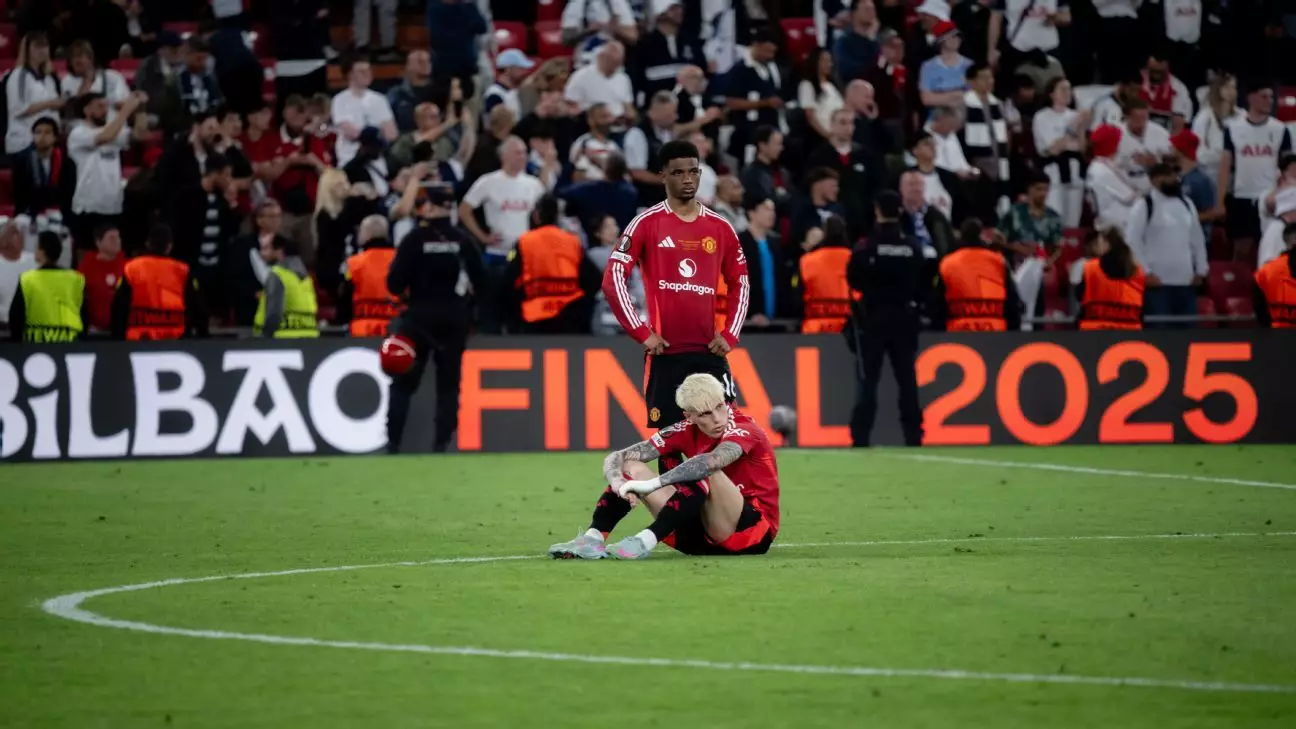In a recent statement that echoed throughout the paraphernalia of Manchester United discussions, Amad Diallo extolled the virtues of his teammate, Alejandro Garnacho, expressing hope that the promising 20-year-old winger would remain loyal to the club amid mounting speculation about his potential departure. Diallo’s sincerity underscores not only his regard for Garnacho’s talent but also the importance of team cohesion in tumultuous times. His affirmations come as Garnacho’s representatives prepare to negotiate a new chapter for the skilled Argentine, potentially marking a critical juncture in his career and United’s strategy.
The prospect of Garnacho leaving Old Trafford raises questions about the club’s vision moving forward, as his talent is undeniable. Garnacho’s recent performances, coupled with Diallo’s support, reflect a shared ethos within the squad: unity can often be the bedrock of success. The dilemma lies in whether the right offer will persuade the club to part ways with a player who possesses the potential to flourish and redefine Manchester United’s attacking front.
The Uncertain Transfer Landscape
As we delve deeper into Garnacho’s situation, we must confront the unsettling uncertainty that shrouds football transfers every summer. The intricacies of this market often lead to hasty decisions that can dramatically affect a player’s career trajectory and a club’s ambitions. ESPN’s sources indicate that Garnacho could be on the brink of departure if an attractive proposal surfaces—an indication that the fire of speculation may threaten to consume both the player and the team’s strategic goals.
United must weigh the financial benefits of a sale against the invaluable addition Garnacho represents in their ranks. Will selling him pave the road for new signings, or will letting him go signify a missed opportunity to cultivate the future foundation of a revitalized Manchester United? In times when most clubs prioritize immediate gains, the long-term vision could easily become sidelined.
On The Field and Off The Field Dynamics
The peculiar dynamics on the field cannot be ignored. Garnacho’s absence during crucial moments—like the Europa League final—exposes underlying issues that may particularly impact a young player’s morale. Returning a mixed bag in terms of performance during a challenging season, where United faltered to finish 15th in the Premier League, Garnacho’s frustrations are palpable. The pressure to perform during the ongoing tour, where the squad is yet to secure a win, brings the notion of collective responsibility to light.
Seeking to engage with sympathetic fans amid vocal disappointment serves as an arduous task for both the players and the management. Ruben Amorim articulated this struggle, as he acknowledged that the failed season made meaningful connectivity with supporters increasingly difficult. This highlights a broader need for unity at the club—a foundation that garners both fan trust and player loyalty.
Turning Challenges into Opportunities
While the atmosphere seems tumultuous, it’s essential to view this period as a potential turning point. The participatory approach adopted by both Amad and Amorim emphasizes a need to confront challenges head-on rather than sidestepping uncomfortable realities. Yet, therein lies the opportunity for Garnacho and the remainder of the squad to galvanize their spirit, transforming moments of disappointment into lessons learned.
It is precisely during such challenging times that a club’s ethos and culture are tested. For Garnacho, staying could mean becoming pivotal in guiding the club back to its glory days, while a departure may open new avenues of playing time and exposure elsewhere. Regardless of the outcome, the focus must remain on what is best not merely for individual ambitions but for the collective aspirations of a historically significant club trying to navigate its way through stormy seas.
A Balancing Act with Fan Expectations
The deeper cracks exposed within the team dynamics open another crucial dialogue: balancing fan expectations with the physical and mental toll on players. United’s history has created an insatiable demand for success, yet this carries an inherent risk of transporting youth— like Garnacho—into an unforgiving spotlight too early. Fostering an environment where young talent can thrive rather than simply survive must become a priority.
The road ahead is fraught with uncertainty, yet within that uncertainty lies the raw potential for growth and metamorphosis. As Manchester United weighs its options, the club must consider not just the player or the finances but what kind of legacy it wishes to build. In such a high-stakes environment, the decisions made today will echo long into the future.

